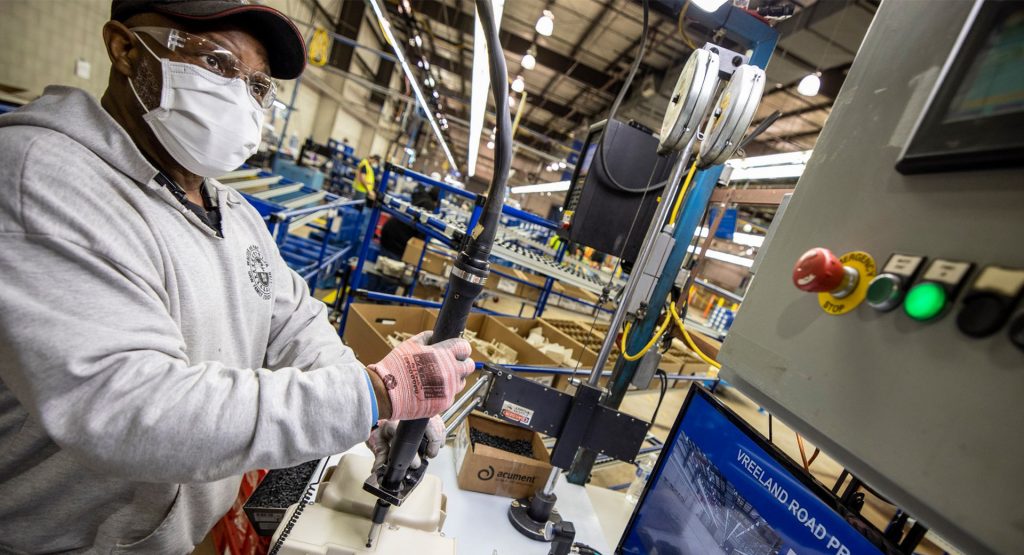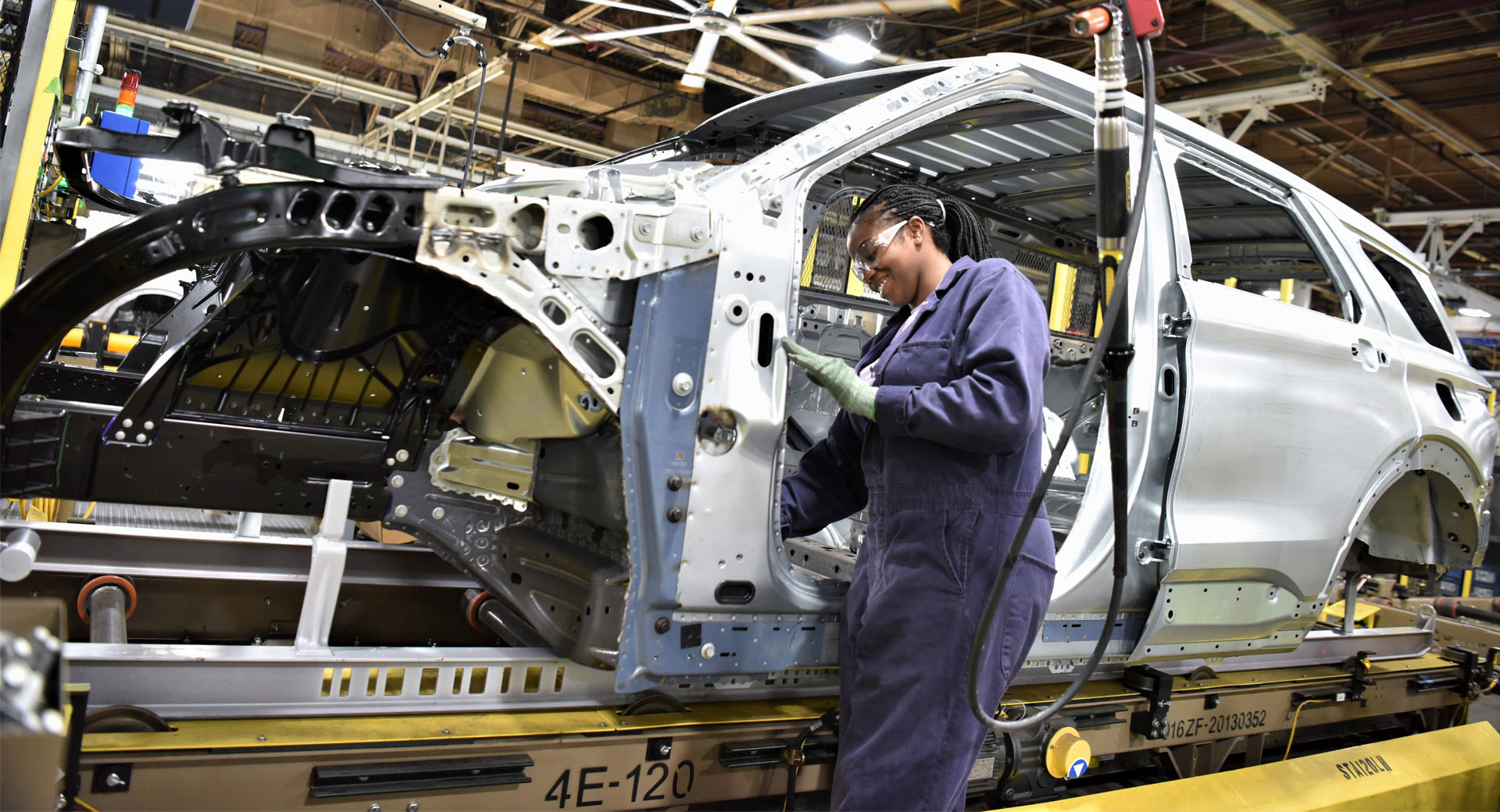Ford hopes to see salaried employees return to work by late June or early July in the United States, Canada, and Mexico.
During a recent conference call with reporters, Ford’s chief human resources officer Kiersten Robinson pointed towards that time frame saying the car manufacturer has protections that will allow for a staggered return, The Detroit Free Press reports.
Read More: Ford Plans To Resume Production With Health Screenings, Temperature Checks And Face Masks
Among the measures to be implemented for employees will include daily online health self-certifications completed before work every day, no-touch temperature scans upon arrival, providing all employees a care kit with a face mask and hand sanitizer, safety glasses with side shields or face shields if needed, increased cleaning and disinfecting of facilities, and hand sanitation stations.
Ford’s plans for formal coronavirus safety measures include:
-Daily online health self-certifications completed before work every day.
-No-touch temperature scans upon arrival.
-Providing all employees a care kit including a face mask and hand -sanitizer.
-Safety glasses with side shields or face shields, if needed.
-Increased cleaning and disinfecting of facilities.
-Hand sanitation stations
“The bottom line is, based on all the information we have access to, we will not have a reliable and scale-able testing solution for several weeks and it may even be months,” Robinson said. “Longer term, we do think it’s going to be critical. Unfortunately, that solution is not available to us. Hopefully in coming weeks, if not months, that will be part of our protocol.”
Ford’s employees in China have already returned to the workplace and employees across Europe are seeing a return on a staggered schedule also. Chief operating officer at Ford Jim Farley says safety measures implemented in China have served as a prototype for the company around the globe.
Ford’s chief manufacturing and labor affairs officer Gary Johnson added the company is making arrangements to set up rapid testing of employees as needed with local hospitals and when production does resume, it will do so in staggered shifts including times for safety “stand-downs” and cleaning.




